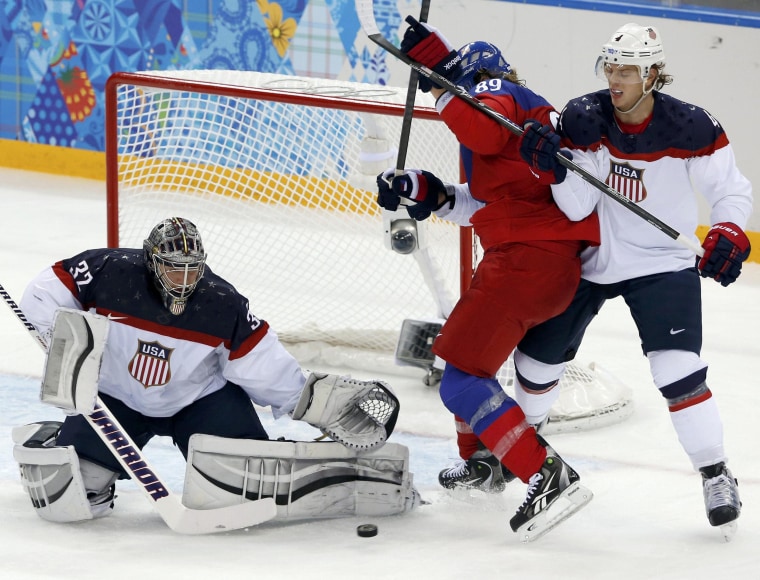When the United States faces off against Canada in the men’s ice hockey semifinal at the Winter Olympics on Friday, only the most committed fans will be cheering in a sports bar.
The others will be stuck at work, watching what could become the most live-streamed sporting event in NBC Sports history from their laptops. The puck drops at 12 p.m. ET — right in the middle of the workday on the East Coast, and late enough for people on the West Coast to watch it with their morning soy vanilla lattes.
On Wednesday at noon, 798,337 unique users streamed the showdown between the United States and Czech Republic. The only NBC Sports event to beat it was Super Bowl XLVI in 2012, which was streamed by 2.1 million people.
NBC Sports is expecting large numbers for Friday's game, and says that it has the infrastructure to handle it. But that doesn't mean it won't be a challenge.
Remote areas like Sochi often don't have great Internet connection in the first place, Darcy Lorincz, manager director of live events and sports for Accenture, told NBC News. The sudden onslaught of users just make things worse.
"An IP is not smart enough to prioritize," he said. "It doesn't know if it’s sending out a text message, or a critical video packet from today’s men’s hockey game. There is a competition for resources."
Viewers now expect more sophisticated live-streams, complete with multiple camera angles, statistics, and interactive features. Converting that into smoothly streaming video takes "a lot of horsepower," he said, something that networks have to predict beforehand.
Not only are the networks strained, but so is the Internet connection at your office, where multiple computers will be hogging bandwidth and slowing the connection.
"During the Olympics and World Cup and other sporting events of this scale, it’s a game networks play between capacity versus cost," Lorincz said. "Most of them don’t overbuild their infrastructure."
